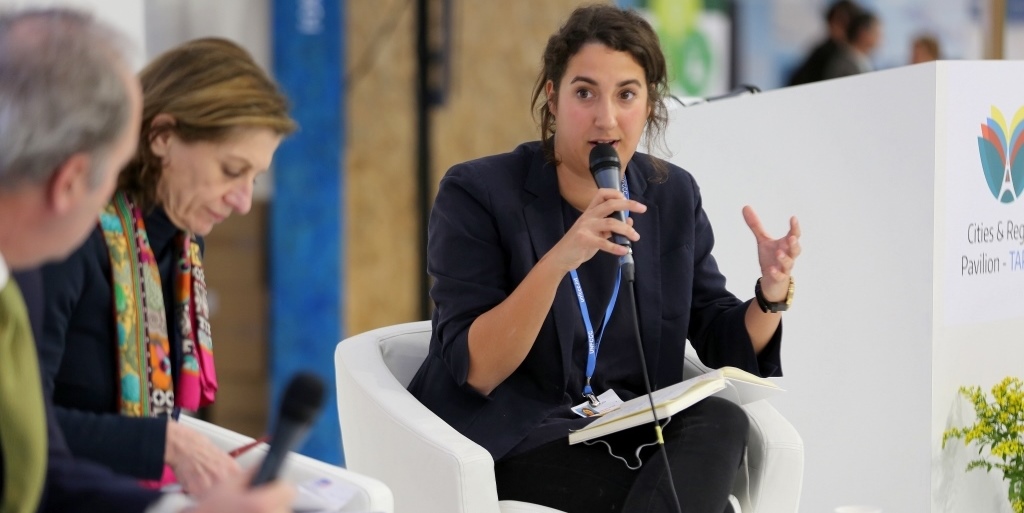Scaling climate finance: From COP29 to COP30 and beyond
Cities, responsible for nearly 70 percent of global CO2 emissions, are at the forefront of both climate challenges and solutions, yet remain highly vulnerable to climate impacts, with over 70 percent already experiencing severe effects. Despite their critical role in implementing mitigation and adaptation efforts, local governments face a massive annual funding gap of trillions of dollars, hindering progress toward net-zero targets. This challenge is particularly acute for cities in the Global South, where financial constraints and heightened climate vulnerability exacerbate the inequitable distribution of climate finance.
Bridging the climate finance gap
Urban climate finance is the lifeline for achieving a just, sustainable transition. Beyond addressing emissions, it enables renewable energy adoption, infrastructure resilience, and provides essential services for citizens and businesses. It also drives technology transfer, capacity building, and technical assistance to enable local governments to lead transformational change.
To close this gap, a blended finance approach is essential, combining grants, concessional loans, and private sector investments to mobilize the trillions of dollars needed globally. Climate finance initiatives should prioritize inclusivity, ensuring that vulnerable cities and regions are not left behind.
Momentum from COP29: A foundation for COP30
COP29 in Baku, Azerbaijan, focused on mobilizing resources for climate action. The Local Governments and Municipal Authorities (LGMA) Constituency had significant expectations for COP29, particularly regarding climate finance and urban action. They had advocated for trillions of dollars in climate finance by 2030 and emphasized the importance of direct access to funding for local and subnational governments. COP29 outcomes, however, were underwhelming in this regard. A new climate finance goal of USD 1.3 trillion annually by 2035, with USD 300 billion in public funding, was established, but the LGMA considers this a baseline, not the ceiling, for finance ambition. Additionally, LGMA called for grants rather than loans to avoid exacerbating debt burdens, a call that appears insufficiently addressed in the outcomes.
Therefore, the road to COP30 must prioritize more ambitious and innovative financing mechanisms to scale up support, such as blended finance and increased concessional and grant funding, to scale support, particularly for cities in the Global South. The stakes are high, but so is the opportunity: empowering cities and subnational regions to act as engines of climate action is pivotal to achieving global climate goals.
Driving change through partnerships and initiatives
Strong partnerships and innovative programs are key to unlocking urban climate finance. Organizations like ICLEI are leading the path with initiatives such as the Transformative Actions Program (TAP). TAP mobilizes transformative local sustainable infrastructure projects by connecting local governments with project preparation support and investment opportunities.
The impact of TAP is evident. Over 15 TAP partners have supported a project portfolio valued at USD 1.9 billion by providing technical assistance and access to financiers. In addition, partners such as the UN Capital Development Fund and with support of the Cities Climate Finance Gap Fund, technical assistance is rolled out and access is facilitated to finance projects in Global South cities.
Moreover, the Green Cities Guarantee Fund, unveiled during the U20 Summit 2024 in Rio de Janeiro, will complement these efforts by offering credit guarantees to accelerate climate projects, also from ICLEI’s TAP – which serves as a one-stop interface for local governments to submit and align projects with the Sustainable Development Goals (SDGs), providing co-benefits such as gender equality, poverty reduction, and urban resilience.

From left to right: Mohamed Sefiani (City of Chefchaouen), Wilber Ottichilo (Council of Governors), Niina Ratilainen (European Committee of the Regions), Mohamed Basheer (Noonu Atoll Council) participated in the event “A call to action for climate social justice through Loss and Damage” at the Multilevel Action and Urbanization Pavilion at COP29, co-convened by ICLEI and UN Habitat.
Looking ahead to 2025: Scaling action
As we progress toward COP30, expanding partnerships and mobilizing resources for 2025 is crucial. Key steps include strengthening collaborations among public and private actors, providing technical and financial support to subnational governments, and enhancing their engagement in capacity-building initiatives. These efforts will equip local and regional governments to implement truly transformative projects identified as priority climate projects that advance local and global climate and sustainability goals.
The momentum from Baku must be harnessed strategically to bridge the climate finance gap, enabling cities to fulfil their potential as leaders of climate action. The path to COP30 in Belém is not only about commitments, it is about creating tangible, equitable, and scalable solutions to the climate crisis.
This piece was written by Natalia Salazar, Head of Innovative Finance, and Jaume Marquès Colom Officer of Innovative Finance, with contributions from Yunus Arikan, Director of Global Advocacy at ICLEI World Secretariat.






